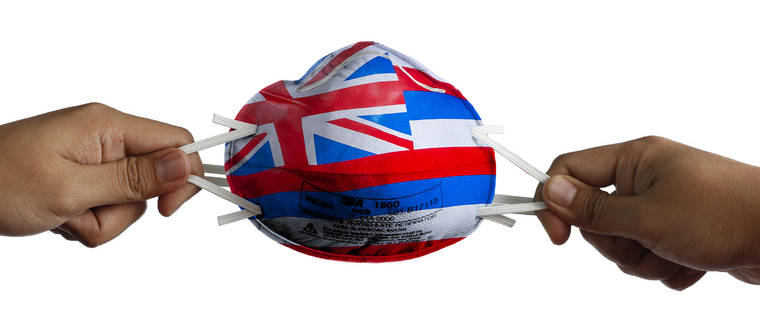Many of us are watching with grave concern as hospitals in parts of the mainland struggle with severe surges in COVID-19 cases. Several of my colleagues in other states are wrestling with PPE (personal protective equipment) shortages and ethical decisions that I hope we never have to face here.
Hawaii’s COVID-19 experience has been a mild one relative to much of the mainland. At Kaiser Permanente Moanalua Medical Center, we’ve been able to take excellent care of our COVID-19 patients who’ve required hospitalization. Having helped manage many of these patients during their hospital stays, I can say with certainty that we would not have been able to care for them as aggressively as we did if we had faced the numbers of patients being seen currently in many mainland hospitals.
When you’re able bring the entire muscle of your institution to bear on a manageable number of COVID-19 cases, you can provide the kind of no-holds-barred patient care that you simply can’t once your hospital’s overrun.
As an infectious-disease physician and as someone who trained in epidemiology, I see this novel coronavirus in fairly simple terms despite its complexity. It’s a virus that’s adept at spreading between people, especially indoors. For those who become ill from the virus, it’s quite clear now that it spreads effectively for several days before you feel sick, and for some days afterwards; and a significant percentage of people who are infected will never feel sick at all, but can still spread the infection to others. As viruses go, this one’s as coldly efficient as they come.
So, with Hawaii’s case counts climbing in the past few weeks, especially on Oahu, I’m asking everyone to please double down on our individual masking and physical distancing efforts — especially masking. It’s such a simple and effective way to protect ourselves and also to protect others in case we’re unknowingly infected.
When it comes to wearing facemasks, we’re starting from a good place in Hawaii compared to much of the mainland.
I’m grateful that as a state we’ve largely avoided the issue of masking becoming politicized, and that we have close cultural ties to countries such as Japan and South Korea where wearing a face mask in public was common well before the start of the COVID-19 pandemic.
Having grown up here, I love that Hawaii has such a rich sense of community, and of folks looking out for each other — much more so than anywhere else I’ve lived. Still, I’ve sensed a general degree of “COVID fatigue” over the last month in our state, and a collective letting down of our guard in terms of physical distancing and masking. Our recent climb in cases here reflects this, I think.
I know that wearing a mask isn’t fun, and I know it can feel awkward to keep your mask on when those around you have taken theirs off.
But please, for all of our sakes — for your family’s health; for the bus drivers, grocery store cashiers, and health care workers hard at work in the community; and for the well-being of Hawaii’s economy, which affects us all — please, please mask up when you’re around others, especially when indoors, but also at outdoor gatherings. Try to make masking as reflexive and natural as taking off your slippers before you enter a friend’s home — a sign of respect, and of the aloha spirit that’s unique to our state.
As a community, it’s crucially important that we get this right. Let’s take care of one another through the simple act of masking and show the rest of the country how it should be done.
Tarquin Collis, M.D., is chief of infectious diseases at Kaiser Permanente Hawaii.

